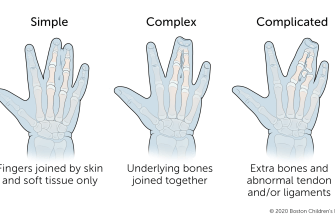Dyspnea, also known as shortness of breath or difficulty breathing, is a common symptom that can be caused by various underlying conditions. It is characterized by a sensation of labored breathing or breathlessness, often accompanied by a rapid or shallow breathing pattern. Understanding the causes and remedies for dyspnea is crucial for managing this distressing symptom effectively.
Causes of Dyspnea
Dyspnea can be caused by a wide range of factors, including:
- Respiratory conditions: Chronic obstructive pulmonary disease (COPD), asthma, pneumonia, and pulmonary embolism are some respiratory conditions that can lead to dyspnea.
- Cardiovascular problems: Heart failure, coronary artery disease, and arrhythmias can impair the heart’s ability to pump blood efficiently, resulting in inadequate oxygen supply and dyspnea.
- Anemia: A low red blood cell count or insufficient hemoglobin levels can reduce the oxygen-carrying capacity of the blood, leading to dyspnea.
- Obesity: Excess weight can put strain on the respiratory system, making it harder to breathe and causing dyspnea.
- Anxiety and panic disorders: Psychological factors can contribute to dyspnea, as anxiety and panic attacks can cause rapid breathing and a feeling of breathlessness.
- Other causes: Certain medications, such as beta-blockers and opioids, as well as high altitude, lung cancer, and neuromuscular disorders, can also result in dyspnea.
Remedies for Dyspnea
The treatment of dyspnea depends on its underlying cause. Here are some remedies that can help alleviate this symptom:
1. Managing Respiratory Conditions
If dyspnea is caused by respiratory conditions like COPD or asthma, the following measures can be beneficial:
- Using inhalers or bronchodilators as prescribed by a healthcare professional to open up the airways and improve breathing.
- Practicing breathing exercises, such as pursed-lip breathing and diaphragmatic breathing, to enhance lung function and reduce dyspnea.
- Avoiding triggers that worsen respiratory symptoms, such as smoke, allergens, and pollutants.
- Maintaining a healthy lifestyle by exercising regularly, eating a balanced diet, and quitting smoking.
2. Addressing Cardiovascular Problems
If dyspnea is related to cardiovascular issues, the following remedies may be helpful:
- Managing underlying heart conditions through medication, lifestyle modifications, and, in some cases, surgical interventions.
- Adopting a heart-healthy diet low in sodium and saturated fats to reduce the risk of heart disease and improve overall cardiovascular health.
- Engaging in regular physical activity, as recommended by a healthcare professional, to strengthen the heart and improve circulation.
- Monitoring blood pressure and cholesterol levels regularly to identify and manage any abnormalities that may contribute to dyspnea.
3. Treating Anemia
If dyspnea is caused by anemia, the following remedies can be beneficial:
- Treating the underlying cause of anemia, such as iron deficiency or vitamin B12 deficiency, through appropriate supplementation or dietary changes.
- Consuming iron-rich foods, such as leafy greens, lean meats, and fortified cereals, to boost red blood cell production and improve oxygen-carrying capacity.
- Ensuring an adequate intake of vitamin C, as it enhances iron absorption from plant-based sources.
4. Managing Anxiety and Panic Disorders
If dyspnea is primarily driven by anxiety or panic disorders, the following remedies may be helpful:
- Seeking therapy or counseling to address the underlying psychological factors contributing to dyspnea.
- Learning relaxation techniques, such as deep breathing exercises, meditation, and mindfulness, to reduce anxiety and promote a sense of calm.
- Engaging in regular physical activity, as it can help alleviate stress and improve overall mental well-being.
- Practicing stress management techniques, such as journaling, engaging in hobbies, and maintaining a healthy work-life balance.
It is important to note that dyspnea can sometimes be a symptom of a medical emergency, such as a heart attack or a severe allergic reaction. If dyspnea is sudden, severe, or accompanied by chest pain, lightheadedness, or swelling of the face and throat, immediate medical attention should be sought.
In conclusion, dyspnea is a distressing symptom that can be caused by various underlying conditions. Identifying and addressing the root cause of dyspnea is essential for effective management. Whether it is managing respiratory conditions, addressing cardiovascular problems, treating anemia, or managing anxiety and panic disorders, there are remedies available to alleviate dyspnea and improve overall quality of life.








